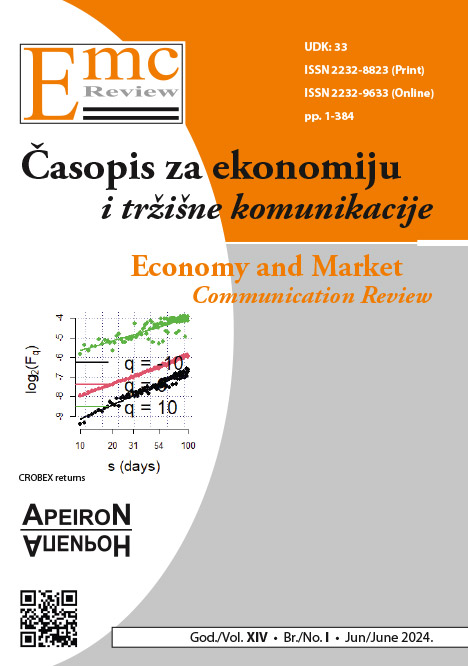ANALYSIS OF THE INFLUENCE OF WORKING TIME FLEXIBILITY AND LABOUR LAW STATUS FLEXIBILITY ON THE REDUCTION OF THE UNEMPLOYMENT RATE
DOI:
https://doi.org/10.7251/EMC2401069DKeywords:
flexible forms of work, unemployment rate, labour market, EU countriesAbstract
With the aim of analyzing the impact of employment in the observed flexible forms of work on the unemployment rate in Austria, Croatia, Italy, Hungary and Slovenia, the author systematically investigated and analyzed the impact of working time flexibility and labour law status flexibility on the unemployment rate. The aim of this paper is to investigate the connection between the unemployment rate and the proportion of people surveyed in the sample who work in the following flexible forms of work: work in shifts, evening work, night work, work on Saturdays, work on Sundays and work from home. The research in the paper was conducted on the EU LFS official data set obtained on the basis of the RPP 35/2020-LFS project approved by the European Commission and Eurostat. The author analyzed a sample of 447,031 respondents in the period from 2008 to 2018. In the research part of the work, a statistically significant model of the linear association of the criterion variable of the unemployment rate with the predictor variable SENSSH and a statistically significant model of the nonlinear association of the criterion variable of the unemployment rate with the predictor variable SENSSH will be generated for each observed EU country. Based on an extensive analysis of data from selected EU member states, results were obtained that indicate an evident reduction in the unemployment rate in 80% of the observed countries through the introduction of flexible forms of employment.
